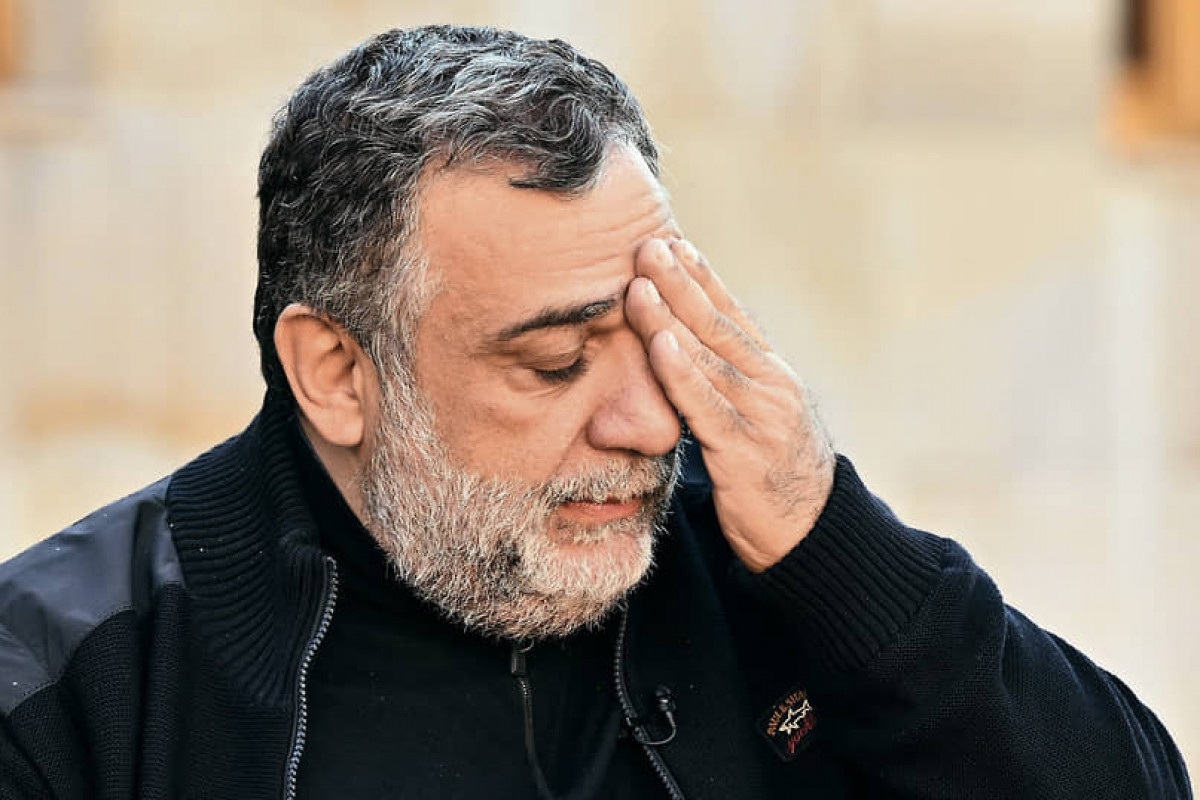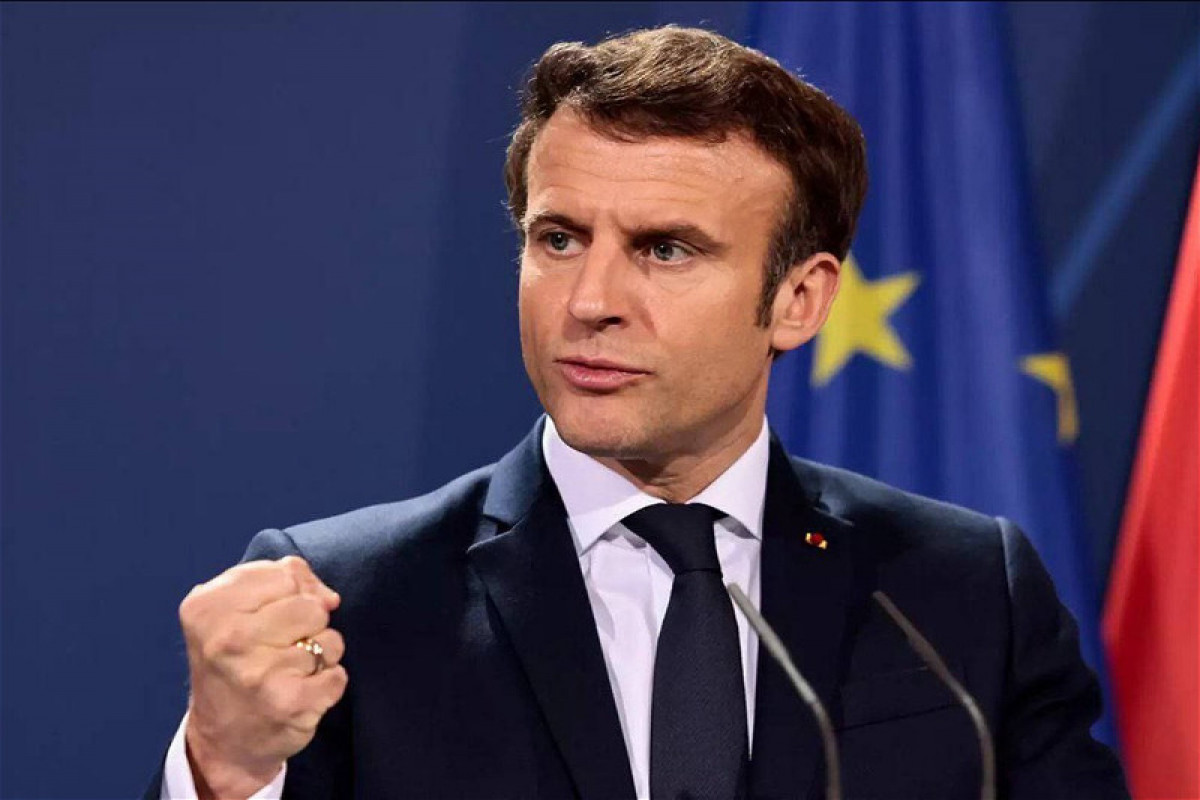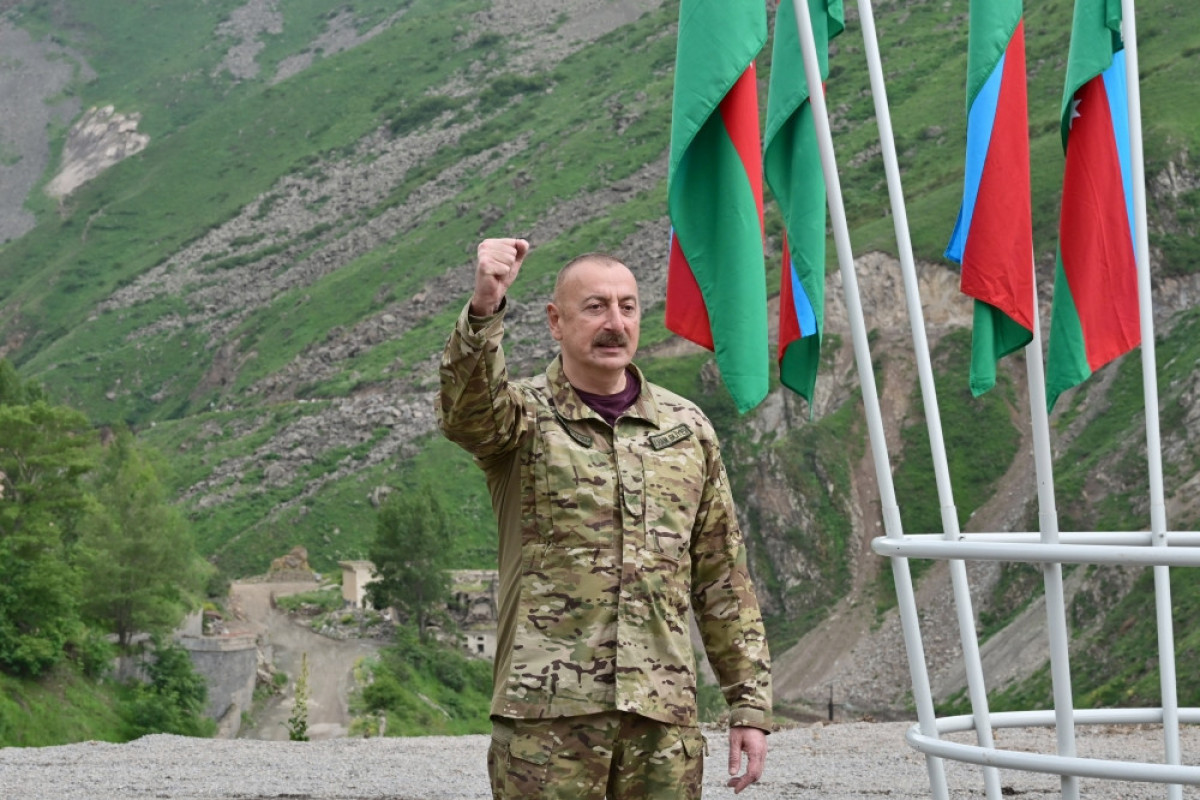Turkey-Azerbaijan strategic alliance treaty and Russia-Armenia military agreement: Status-quo in the South Caucasus remains unchanged – ANALYTICS

Baku. Vugar Masimoglu – APA. Russian-Armenian agreement signed in Yerevan today for prolongation of the term of deployment of the Russian military base in Armenia didn’t create new agenda. The similar agreement has been existed between the two countries since 1995 and after the USSR collapse Russia took responsibility for the security of Armenia. The newly-signed agreement didn’t entrust the sides with additional responsibilities. Moscow was a guarantor for Armenia’s security on the basis of bilateral and multilateral (Collective Security Treaty Organization) agreements and it continues to do that. There is no important process in the world and region that can change the situation and it has little probability to occur.
What is changed? The agreement is a Russian message to the West that it will not step back from its policy to strengthen its position in the South Caucasus for long time. Unlike its predecessor, the Obama’s administration prefers to pursue careful policy in the points where its interests confront with the Russian interests and following the East Europe it gives up the South Caucasus to Kremlin. Moscow successfully uses the USA’s “momentary†hesitations to strengthen its positions in the troubled areas. Russia officialized its military presence in Armenia for 35 years more and it is proving to the United States that scenarios prepared by the Western political circles for “pressing Russia to leave the South Caucasus†is utopia.
One of the dangerous points of the agreement is that it leads to the military balance upset in the South Caucasus and it can also promote the acceleration of the armament process in the region. Of course, military balance upset in favor of the aggressor country concern other countries and both Azerbaijan and Georgia (with direct support of the United States) will have to increase defense expenses to restore the balance. The Russian-Armenian agreement shows that the South Caucasus will remain as an active conflict zone for long time.
The agreement signed in Yerevan means that the situation will not be changed toward the settlement of Nagorno Karabakh conflict for long time. Updating its alliance with the aggressive part of the Nagorno Karabakh conflict, Moscow proved that it can not take unbiased position in the settlement of the conflict. This action will render confidence, which was reduced even without that, to the OSCE Minsk Group’s efforts null. Russia doesn’t officialize its commitments not to use its military resources in Armenia against Azerbaijan. In this regard, Russian-Armenian military-political alliance will threaten Azerbaijan’s interests, specially its interests in the solution to Nagorno Karabakh conflict, for long years (until 2044).
What can change this status-quo existed and expected to exist for long years? In this context, Azerbaijan’s joining the Collective Security Treaty Organization is one of the scenarios that can be considered in hypothetic order. In fact, the agreement signed in Yerevan is a message to Azerbaijan inviting it to the Collective Security Treaty Organization. Of course, Azerbaijan’s representation in this military alliance can fundamentally change the balance of political interests in the region. Baku has fundamental arguments to avoid membership in CSTO. Azerbaijan can not participate in joint security scenarios together with Armenia, which occupied a part of its lands. CSTO membership can be possible only in that case when the Nagorno Karabakh conflict is solved and Armenia doesn’t threaten Azerbaijan’s security. Can Russia, which hopes to see Azerbaijan in CSTO, be a guarantor for fair solution to Nagorno Karabakh conflict? It is not likely. Russia prefers its interests than interests of Azerbaijan, Armenia or Georgia and in this regard, Russia makes brave steps forward against the background of weakening positions of the West in the region and it shouldn’t surprise anyone that Russia will start pressure campaigns against the regional countries in the near future.
How can the threats to Azerbaijan’s interests posed by Russia-Armenia alliance be neutralized? It is possible to view variants of improving the relations with the countries having similar interests into the strategic alliance, making the strategic position and energy resources of the country an influential political resource. It would be one of the most important steps to improve the relations with the neighboring countries, first of all with Georgia and Turkey into real strategic alliance (US-UK, US-Israel, Russia-Armenia etc.). In this context the “Contract between Turkey and Azerbaijan on strategic partnership and mutual assistance†signed during the visit of Turkish President Abdullah Gul to Azerbaijan is of great importance. Such kind of contracts officializing the strategic alliance lay the responsibility on the participating states to perform from common position, not pursuing a policy contrary to one another.
Everyone knows that at times there were problems between Azerbaijan and Turkey. And the main source of these problems was compulsion of Turkey by the West to pursue policy-approach with Armenia. Opening borders with Armenia is one of the urgent issues in the agenda for two years. Indeed, Armenia represents interests of Russia in this issue as well. Undoubtedly, making more official its partnership ties with Moscow, Yerevan will increase its pressure upon Ankara in the issue of opening borders in the next period. It is not clear whether Ankara will make backward or not in this issue. Last statements made at the official level shows Ankara’s hesitation, opinions on opening borders with Armenia temporarily due to holding trainings with NATO aims to prepare the public opinion from psychological standpoint.
From this standpoint, Turkey will send a message to both homeland and international society by opening borders with Armenia. By this means, ruling AKP party will be able to give a promise “You see, I have shown that I may open borders though the pressure of Azerbaijan, this issue will be realized after the elections†to the part of its electorate which supports the opening of borders. The message to US, Europe and Russia does not change essentially: “I have shown that I may open borders though pressure from inside, your pressure is important for direct solution of this problemâ€.
Moreover, unlike previous period, Turkey has a new argument in its hand – this is the treaty on strategic partnership signed with Azerbaijan. According to this treaty, there is a connection between the opening of Turkey-Armenia borders and settlement of Nagorno Karabakh conflict. Formalized strategic alliance means the mutual protection of interests and from this point of view Turkey will partly neutralize pressures through making statements that the opening of Turkey-Armenia borders is contrary to the interests of an official ally Azerbaijan. Certainly, Ankara should openly declare that it seriously approaches the commitments undertaken to Azerbaijan. Like statement Dmitry Medvedev made in Yerevan that “we seriously approach the commitments undertaken to Armeniaâ€.
Dmitry Medvedev’s visit to Armenia, Abdulla Gul’s official visit to Azerbaijan again resulted with formalization of allied relations between the countries. Russia and Turkey formalized their interests in struggle for Caucasus through Russia’s prolongation of the term of deployment of the its military base in Armenia and Turkey’s strategic alliance and mutual assistance treaty with Azerbaijan. Poling process has already started in the South Caucasus. Will the treaties signed in Yerevan further accelerate this process? We will find an answer to this question soon. /APA-Analytics/
What is changed? The agreement is a Russian message to the West that it will not step back from its policy to strengthen its position in the South Caucasus for long time. Unlike its predecessor, the Obama’s administration prefers to pursue careful policy in the points where its interests confront with the Russian interests and following the East Europe it gives up the South Caucasus to Kremlin. Moscow successfully uses the USA’s “momentary†hesitations to strengthen its positions in the troubled areas. Russia officialized its military presence in Armenia for 35 years more and it is proving to the United States that scenarios prepared by the Western political circles for “pressing Russia to leave the South Caucasus†is utopia.
One of the dangerous points of the agreement is that it leads to the military balance upset in the South Caucasus and it can also promote the acceleration of the armament process in the region. Of course, military balance upset in favor of the aggressor country concern other countries and both Azerbaijan and Georgia (with direct support of the United States) will have to increase defense expenses to restore the balance. The Russian-Armenian agreement shows that the South Caucasus will remain as an active conflict zone for long time.
The agreement signed in Yerevan means that the situation will not be changed toward the settlement of Nagorno Karabakh conflict for long time. Updating its alliance with the aggressive part of the Nagorno Karabakh conflict, Moscow proved that it can not take unbiased position in the settlement of the conflict. This action will render confidence, which was reduced even without that, to the OSCE Minsk Group’s efforts null. Russia doesn’t officialize its commitments not to use its military resources in Armenia against Azerbaijan. In this regard, Russian-Armenian military-political alliance will threaten Azerbaijan’s interests, specially its interests in the solution to Nagorno Karabakh conflict, for long years (until 2044).
What can change this status-quo existed and expected to exist for long years? In this context, Azerbaijan’s joining the Collective Security Treaty Organization is one of the scenarios that can be considered in hypothetic order. In fact, the agreement signed in Yerevan is a message to Azerbaijan inviting it to the Collective Security Treaty Organization. Of course, Azerbaijan’s representation in this military alliance can fundamentally change the balance of political interests in the region. Baku has fundamental arguments to avoid membership in CSTO. Azerbaijan can not participate in joint security scenarios together with Armenia, which occupied a part of its lands. CSTO membership can be possible only in that case when the Nagorno Karabakh conflict is solved and Armenia doesn’t threaten Azerbaijan’s security. Can Russia, which hopes to see Azerbaijan in CSTO, be a guarantor for fair solution to Nagorno Karabakh conflict? It is not likely. Russia prefers its interests than interests of Azerbaijan, Armenia or Georgia and in this regard, Russia makes brave steps forward against the background of weakening positions of the West in the region and it shouldn’t surprise anyone that Russia will start pressure campaigns against the regional countries in the near future.
How can the threats to Azerbaijan’s interests posed by Russia-Armenia alliance be neutralized? It is possible to view variants of improving the relations with the countries having similar interests into the strategic alliance, making the strategic position and energy resources of the country an influential political resource. It would be one of the most important steps to improve the relations with the neighboring countries, first of all with Georgia and Turkey into real strategic alliance (US-UK, US-Israel, Russia-Armenia etc.). In this context the “Contract between Turkey and Azerbaijan on strategic partnership and mutual assistance†signed during the visit of Turkish President Abdullah Gul to Azerbaijan is of great importance. Such kind of contracts officializing the strategic alliance lay the responsibility on the participating states to perform from common position, not pursuing a policy contrary to one another.
Everyone knows that at times there were problems between Azerbaijan and Turkey. And the main source of these problems was compulsion of Turkey by the West to pursue policy-approach with Armenia. Opening borders with Armenia is one of the urgent issues in the agenda for two years. Indeed, Armenia represents interests of Russia in this issue as well. Undoubtedly, making more official its partnership ties with Moscow, Yerevan will increase its pressure upon Ankara in the issue of opening borders in the next period. It is not clear whether Ankara will make backward or not in this issue. Last statements made at the official level shows Ankara’s hesitation, opinions on opening borders with Armenia temporarily due to holding trainings with NATO aims to prepare the public opinion from psychological standpoint.
From this standpoint, Turkey will send a message to both homeland and international society by opening borders with Armenia. By this means, ruling AKP party will be able to give a promise “You see, I have shown that I may open borders though the pressure of Azerbaijan, this issue will be realized after the elections†to the part of its electorate which supports the opening of borders. The message to US, Europe and Russia does not change essentially: “I have shown that I may open borders though pressure from inside, your pressure is important for direct solution of this problemâ€.
Moreover, unlike previous period, Turkey has a new argument in its hand – this is the treaty on strategic partnership signed with Azerbaijan. According to this treaty, there is a connection between the opening of Turkey-Armenia borders and settlement of Nagorno Karabakh conflict. Formalized strategic alliance means the mutual protection of interests and from this point of view Turkey will partly neutralize pressures through making statements that the opening of Turkey-Armenia borders is contrary to the interests of an official ally Azerbaijan. Certainly, Ankara should openly declare that it seriously approaches the commitments undertaken to Azerbaijan. Like statement Dmitry Medvedev made in Yerevan that “we seriously approach the commitments undertaken to Armeniaâ€.
Dmitry Medvedev’s visit to Armenia, Abdulla Gul’s official visit to Azerbaijan again resulted with formalization of allied relations between the countries. Russia and Turkey formalized their interests in struggle for Caucasus through Russia’s prolongation of the term of deployment of the its military base in Armenia and Turkey’s strategic alliance and mutual assistance treaty with Azerbaijan. Poling process has already started in the South Caucasus. Will the treaties signed in Yerevan further accelerate this process? We will find an answer to this question soon. /APA-Analytics/
Political

An attempt to create a "Dove of Peace" from Vardanyan — Struggle over the wealth of the separatist billionaire-ANALYTICS

Macron is not sincere in his statements - France allocates less military support to Ukraine than Baltic countries-ANALYSIS

Ilham Aliyev achieved to return Gazakh's 4 villages to Azerbaijan without single bullet or bloodshed -ANALYSIS


